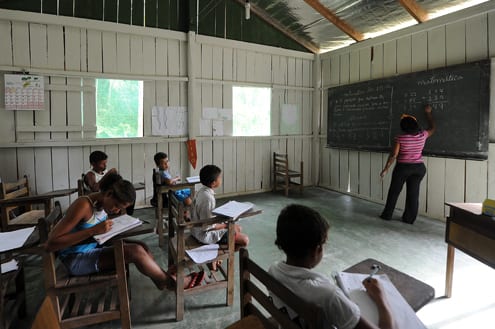While corruption is universally recognized as a major scourge, understanding its causes and consequences is challenging. Work by our faculty shows how corruption hinders the effectiveness of social policy, limits the efficiency of firms at creating wealth, and distorts the ability of the political system to attract competent civil servants and deliver legitimate government.
One example is our work with the Brazilian school system.
Brazil: The Impact of Corruption on School Performance

The Brazilian federal government poured huge sums of money into expanded primary school education during the past decade, yet its students still scored near the bottom of world rankings on standardized tests. Brazilian leaders suspected that many local governments were mishandling money from federal block grants. Was financial corruption directly undermining the performance of students? Was money affecting educational outcomes, independently of a community’s social and economic characteristics?
To get answers, Frederico Finan at the Berkeley Center for Economics & Politics teamed up with researchers in Brazil and at Harvard University to compare audit data on local school spending with indicators of student performance and school quality.
The study drew on federal audits of 790 local governments across Brazil. The municipalities were randomly selected by lottery for in-depth scrutiny, and the audits included both accounting examinations as well as interviews with municipal leaders and members of the community. Finan and his colleagues then compared those audit results with the educational outcomes in each of the audited cities.
They found a powerful correlation between the level of financial mismanagement and student performance. In districts where auditors found significant corruption, students scored significantly lower on standardized tests of language and math skills. Drop-out rates were higher as well. The study also pointed to specific linkages between corruption and poor performance. Teachers in cities with higher corruption had almost 11 percent less formal training on average than teachers in non-corrupt cities. In cities with higher corruption, principals and teachers were also much more likely to report serious shortages of teaching materials.